
5 minute read
The Mind of an Artist
Inspired by Pink Floyds 1979 album “The Wall”, this render details the narrative of an artist trapped with in the four walls of his own mind. This theme of entrapment is explored through cues of a prison environment as seen in the door, bed, desk and window, further reinforced by eerie sterile light coming from beyond the window and door. The crow bar on the shelf sits at the junction of these eerie lights, representing the artists desire to escape, with his previous attempts scarring the back most wall; the door left ajar suggests that someone has come and gone.
INSPIRATION
Advertisement
Trainspotting (1996) Through film Synechdoche New York (2008) The Blues Brother (1980)




Waynes World (1992) The Holy Mountain (1973)



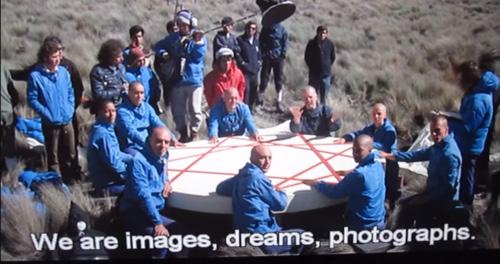



THE WALL
(1982)
All of these films lend spatial, thematic and musical influences to my scene however “The Wall” encapsulates my ideas best.
Following the psychotic breakdown of rockstar Pink Floyd, the film depicts a chronological reccount of Pink’s life so far detailing the metaphorical erection and destruction of the walls he has sorrounded himself with.
I believe Pink represents my perfect “arrogant artist”. As this film unfolds with its musical accompaniment the selfishness and self loathing of PInk become more and more apparent.

INSPIRATION
Daniel Johnston Through music Joni Mitchell Bjork


Bob Dylan Radiohead The Magnetic Fields Herbie Hancock Clara Rockmore
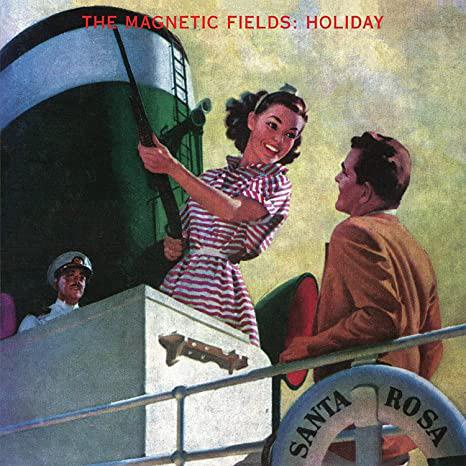








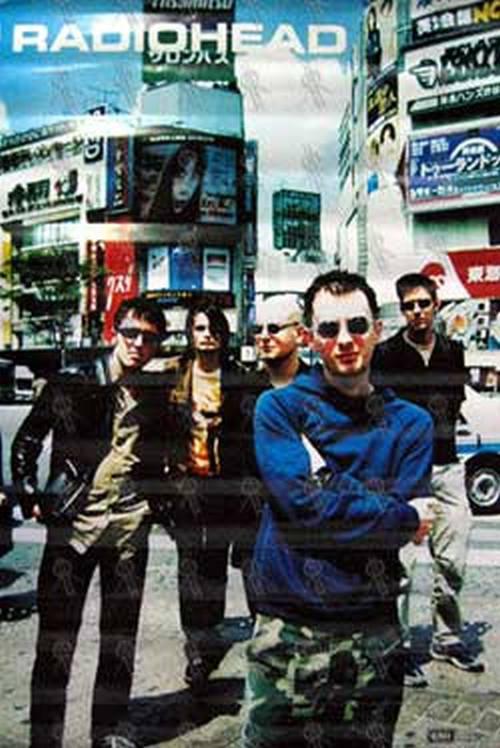

Pink Floyd The Beach Boys



STORYBOARD
For the Arrogant Artist
This storyboard details what is to proceed the scene, as the artist begins to break “the wall” he has sorrounded himself with.
1. Presented with a narrow, claustrophobic scene the viewer is made to feel trapped or imprisoned.
2. “Ordinary” details unveil information about the artist who inhabits this space.
3. “Bizarre” objects then begin to depict a distraught and problematic personality.
4. The camera dolly’s out (similar to trainspotting scene) further elongating the space, suffocating the viewer.
5. The metaphorical wall is broken revealing the temporary existence of this one moment in the artists life; as a stage prop.
6. Multiple scenes/sets of the artists life are then revealed in a large wharehouse space. Lights flicker and cut off.
Long narrow space gives a suffocating enclosed experience Cold concrete floors again informs the prison environment Steel frame prison bed alludes to the theme of isolation mirroring the bars on the windows.
Bars from the bed and window then give off shadows across the scene
Big steel door reinforces enclosure and prison motif.
The door ajar then spills light across the room Re-use of the blue enamel treated steel alludes to a commercial prison environment
The junction where the two sources of light meet.
Here sits the crowbar represent-

ing the artists desire to esape. Crack in the wall where he has tried to “escape” Light sources on the desk highlight poor habits


VIGNETTE 1
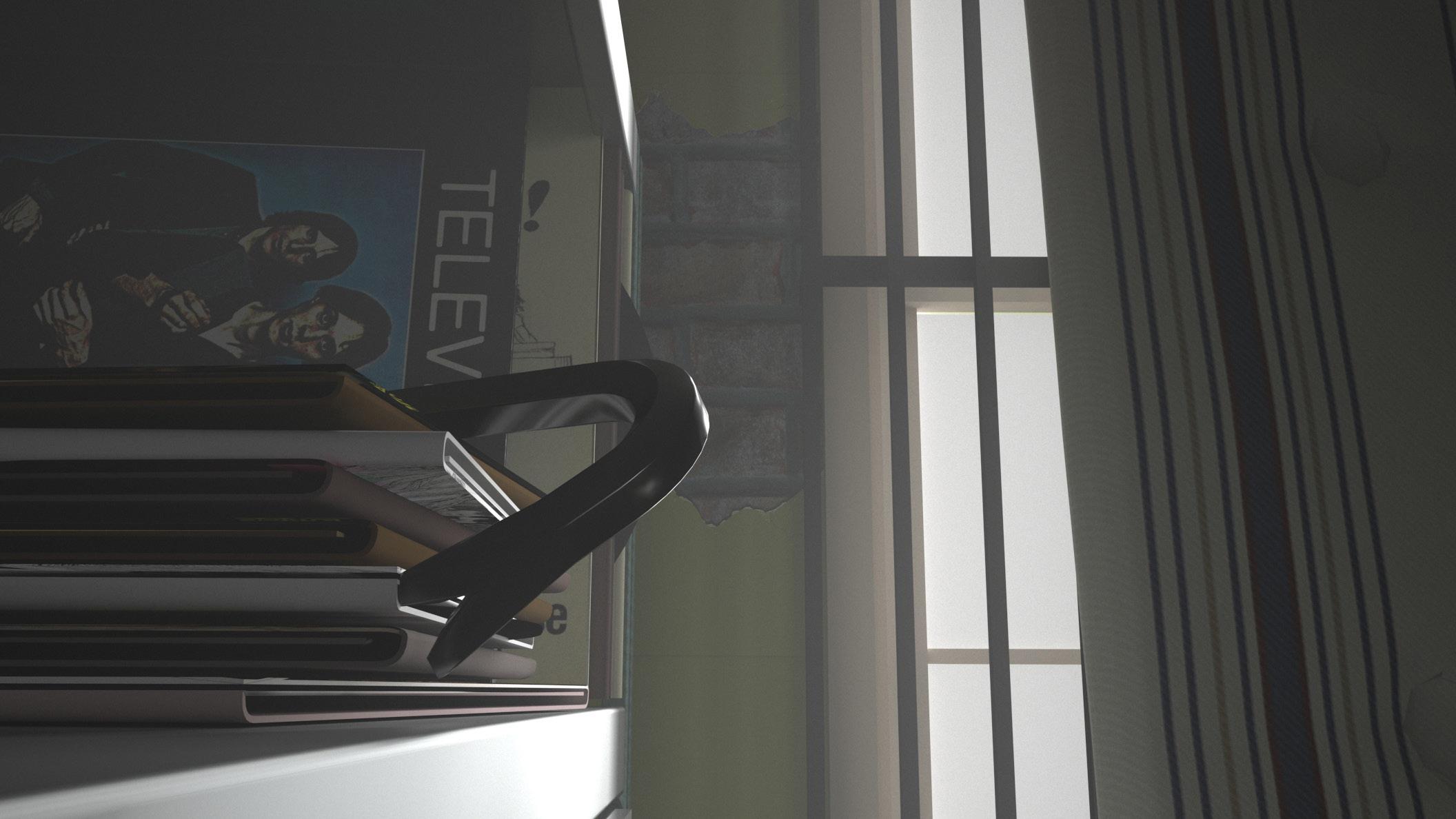
This vignette champions the prop of the crowbar at the junction of door and window light. These lights play an important role in creating hiearchy in the scene.


VIGNETTE 2
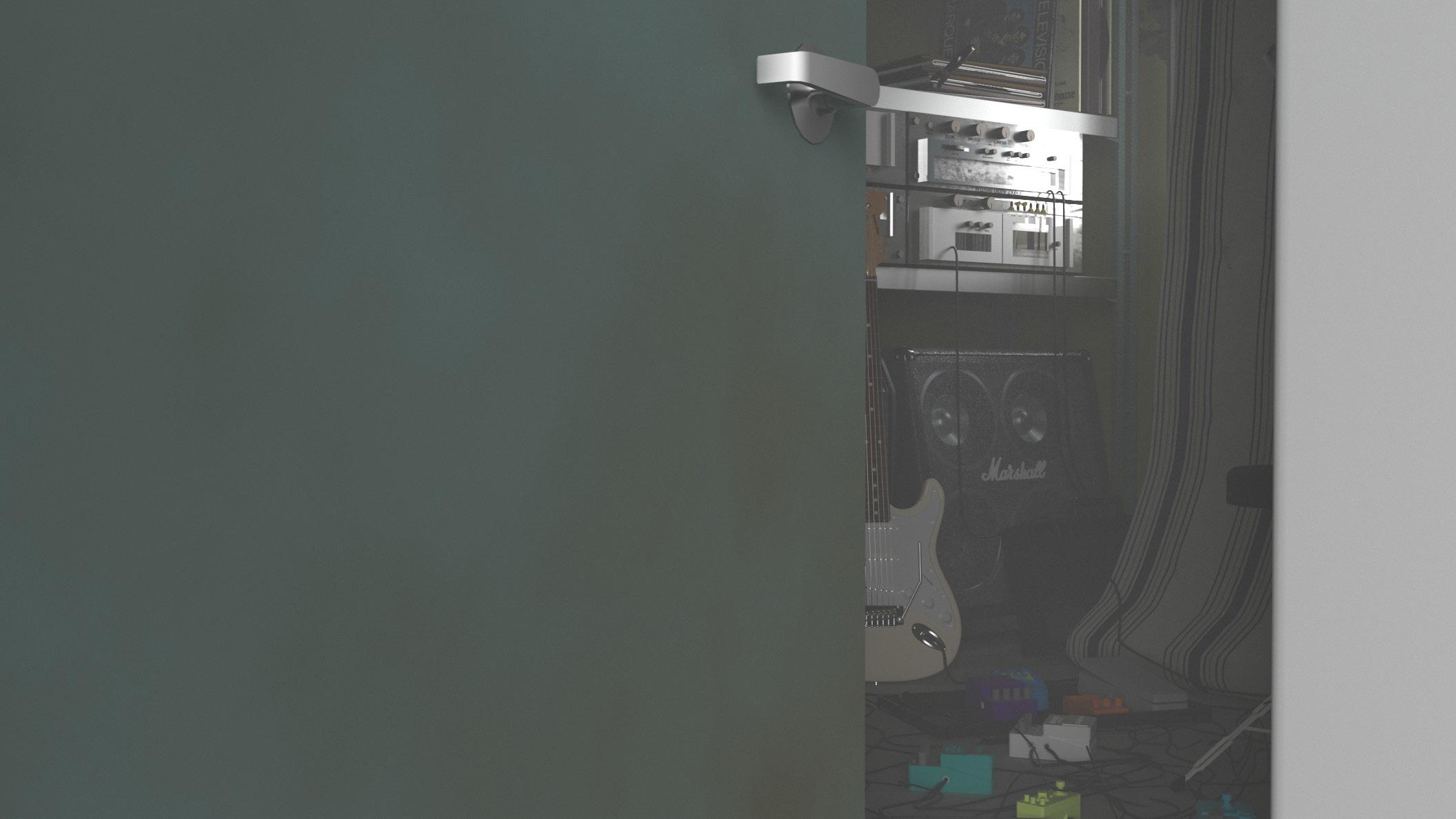
A view from beyond the scene, alluding to what may lay outside. This shot informs the audience of the musician and his practice.
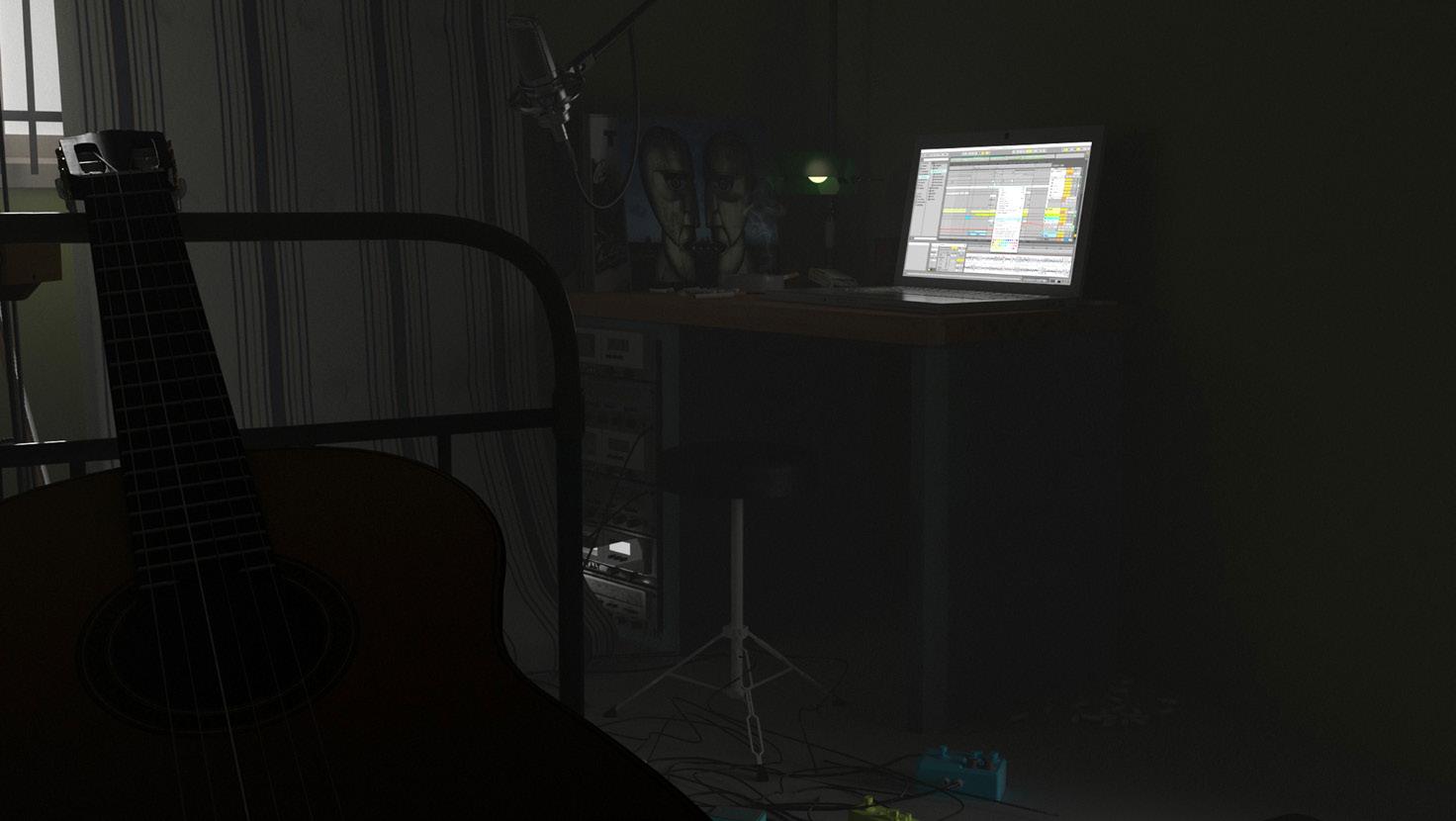

VIGNETTE 3

The last vignette uses figure ground to highlight the darker corners of the artists mind, while reinforcing these opposing sources of light.
FINAL SCENE
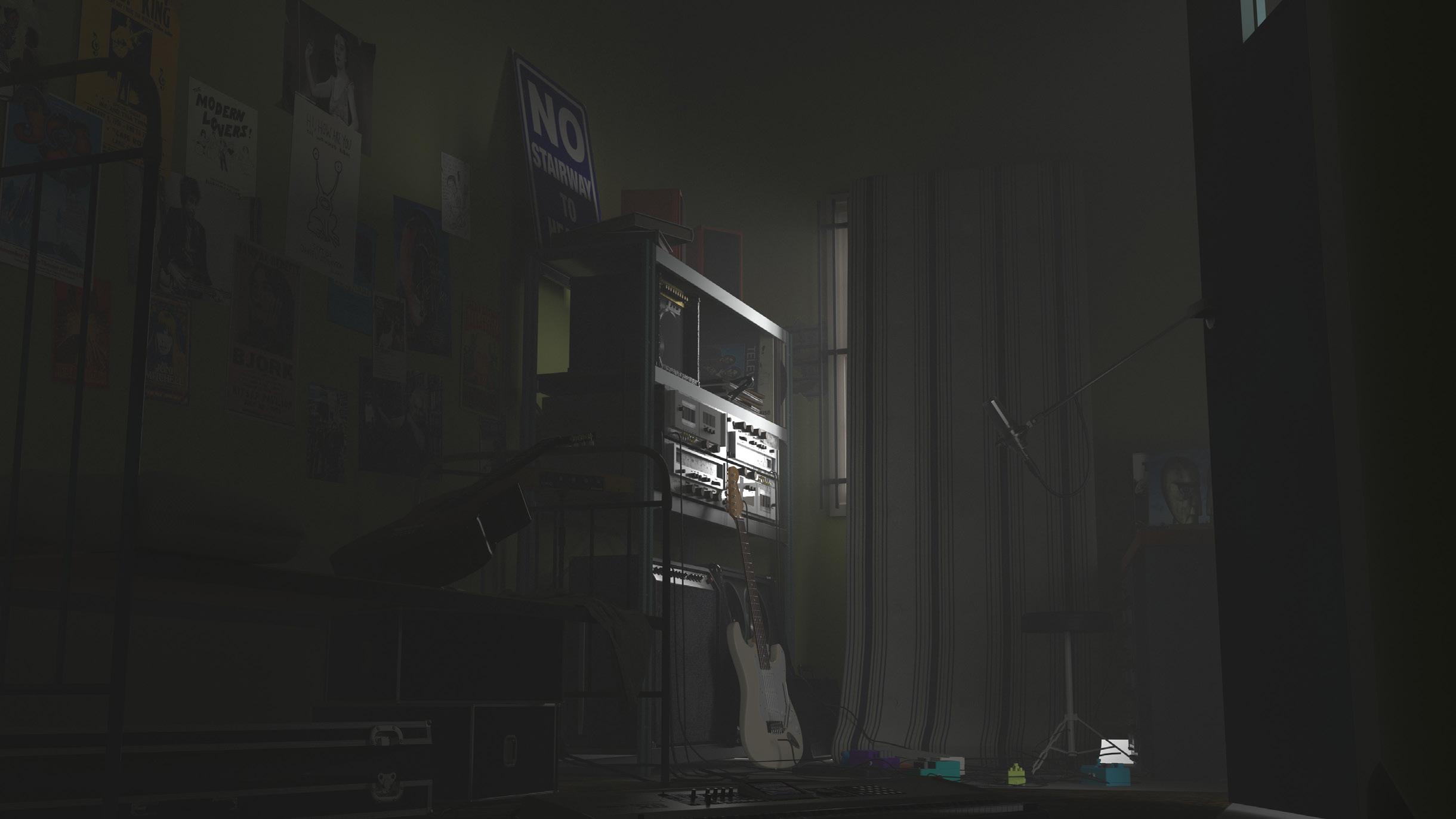
COMPOSITION POST - PRODUCTION






